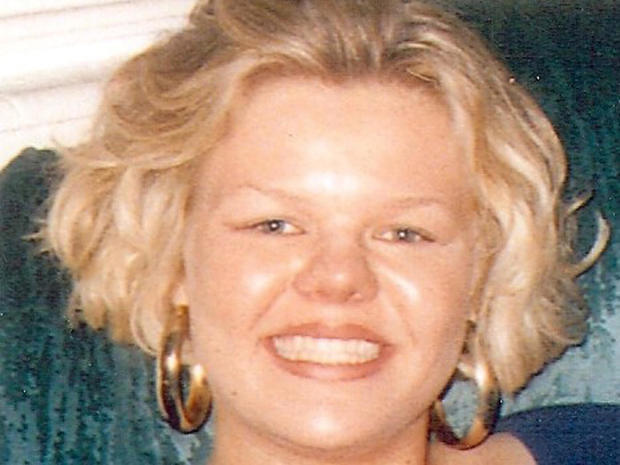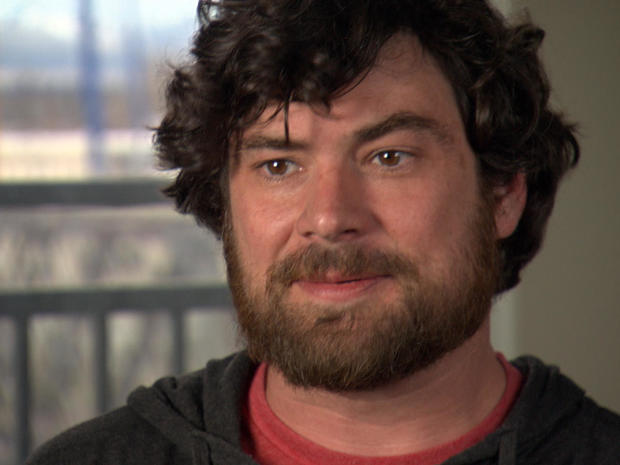How safe is your DNA?
CBS News correspondent Anne Marie Green writes about how she came across this story, and the Angie Dodge murder investigation, which she reported for "48 Hours" in "The DNA of a Killer."
I first learned about the 20-year-old murder of Angie Dodge in a roundabout way, after getting my DNA analyzed by one of those commercial DNA databases. When I got my results back I was not surprised. There were no big revelations and, just as I suspected, I am not related to royalty. But I did wonder if I could learn anything more from the DNA report. That search sent me down a rabbit hole that lead me to the story of Michael Usry Jr., a young filmmaker who became a suspect in the Angie Dodge murder investigation.
After getting my DNA report I learned that there are a number of genealogy sites, educational institutions and companies that are willing to offer you further insight into what your DNA may reveal, as long as you're willing to upload your DNA profile to them. Some of these sites charge money, while others are simply willing to analyze your DNA profile in exchange for adding your profile to their database. I probably uploaded my profile to about four sites. One told me the type of workout supplements I should be taking, another searched public family trees for family connections. There was even one that promised to create a diet tailor made for me based on my DNA. I gave no thought to how my profile could be used by these companies or institutions down the road.
Then I heard that the New York City Police Department was trying to get permission to do something called a "familial DNA" search. What does that mean? Police hunting for a killer in a high-profile murder case wanted to use his DNA to search New York State's criminal database for a relative of his. They had already searched for the killer, but he was not in the database. If they could find someone related to him they would have a family name, making it easier to track down the killer. A quick search of the phrase "familial DNA" and I learned authorities in California had used it to apprehend a serial killer, who had eluded them for 25 years. The infamous "Grim Sleeper," Lonnie Franklin, Jr., had a son who was serving time on a felony weapons charge, and his DNA had been uploaded to the California criminal database. A familial search connected father and son, allowing police to finally make an arrest.
A little more searching and I stumbled across a blog post about a young filmmaker named, Michael Usry Jr. A familial search conducted by Idaho Falls police landed Usry in a stark interrogation room, where he was grilled by detectives and asked for his DNA, without any explanation. I tracked Usry down on Facebook and asked him to call me. When we finally spoke, he told the whole story. How his father had participated in a genealogical study through their church, giving a sample of his DNA to a public database, which was later purchased by Ancestry.com. Years later, in an attempt to crack the 20-year-old cold-case murder of Angie Dodge, police conducted a familial DNA search in that very database, and found an anonymous donor who appeared to be a very close match to the killer's DNA. After obtaining a search warrant for Ancestry.com to reveal his name, detectives learned it was a man named Michael Usry Sr. When cops built out his family tree they found Usry had a son. Cops tracked him down and began investigating.
A month after being interrogated and willingly giving detectives a sample of his DNA, Michael Usry was cleared—but Idaho Falls Police remained convinced that Usry was somehow related to Angie Dodge's killer.
As I talked with Michael Usry, he told me he was very angry about being caught up in the investigation, but he was even angrier about something else. There was a man serving time for Angie's murder, Christopher Tapp, who Usry believes is innocent.
After I hung up the phone, I started researching Angie Dodge's murder and the case against Chris Tapp. I learned that authorities had never found Tapp's DNA at the crime scene. Tapp was convicted of raping and murdering Annie Dodge and had at that point served nearly 20 years because of his own words, a confession he made to police. I was immediately struck by the fact that Michael Usry Jr. and Chris Tapp had found themselves in similar situations, 20 years apart. Both men said they knew nothing about the murder of Angie Dodge , both men had their DNA tested and both men did not match that of the killer, yet one man went to prison and the other man went home. That was the story I pitched to "48 Hours" executive producer Susan Zirinsky.
The day both Michael Usry and I went to see Chris Tapp in prison, I was struck by how soft spoken and kind Tapp was. He cried twice that day, once when I asked about the moment in his interrogation when he began to implicate himself in Angie's murder, and a second time when Michael Usry showed him a video of something that was shot for a documentary Usry is making about this case.
It was an interview with Tapp's wife, Lori, who Tapp had met and married while in prison. In the video, Lori spoke of how much she admired her husband and believed in his innocence. The interview was conducted shortly before Lori was killed in a car crash, and this was the first time Tapp had heard her voice since the accident.
If you watched our report, you know that shortly after my interview with Chris Tapp he made a deal with the district attorney. The rape charge against him was dropped but the murder charge and conviction stand. On March 22, 2017 Tapp was released from prison without having to serve parole.
Then on July 12, 2017, there was more breaking news in the case, this time concerning Michael Usry. Idaho Falls police put out a press release stating that they "took the DNA testing to the next level" and "recently received a DNA report that clears not just Michael Usry Jr. but also his family of involvement in the Angie Dodge homicide case."
The press release went on to say that, "The report stated that they were 87.63 percent confident that the unknown DNA from the Angie Dodge crime scene did not match the Usry family."
I think there are many lessons in this case, but writing strictly as it relates to the privacy of DNA databases, the lesson is this: When you trade your DNA for information you are also giving it away -- and the database you give it to, owns it. What if that company goes out of business and sells the database? Do the protections you have been promised still stand? What if an insurance company wants to know if you carry a specific gene that could increase your chances of getting cancer, or indicates a penchant for risk taking?
What if, like Michael Usry and his family, you are drawn into a murder investigation and it takes several years to be cleared?
Right now, the judicial system is playing catch up when it comes to your rights and protections, so we should all be aware and read the fine print. There is nothing wrong with wanting to know where you came from and what your genes can tell you about your health; just make sure you know what you are signing up for.

